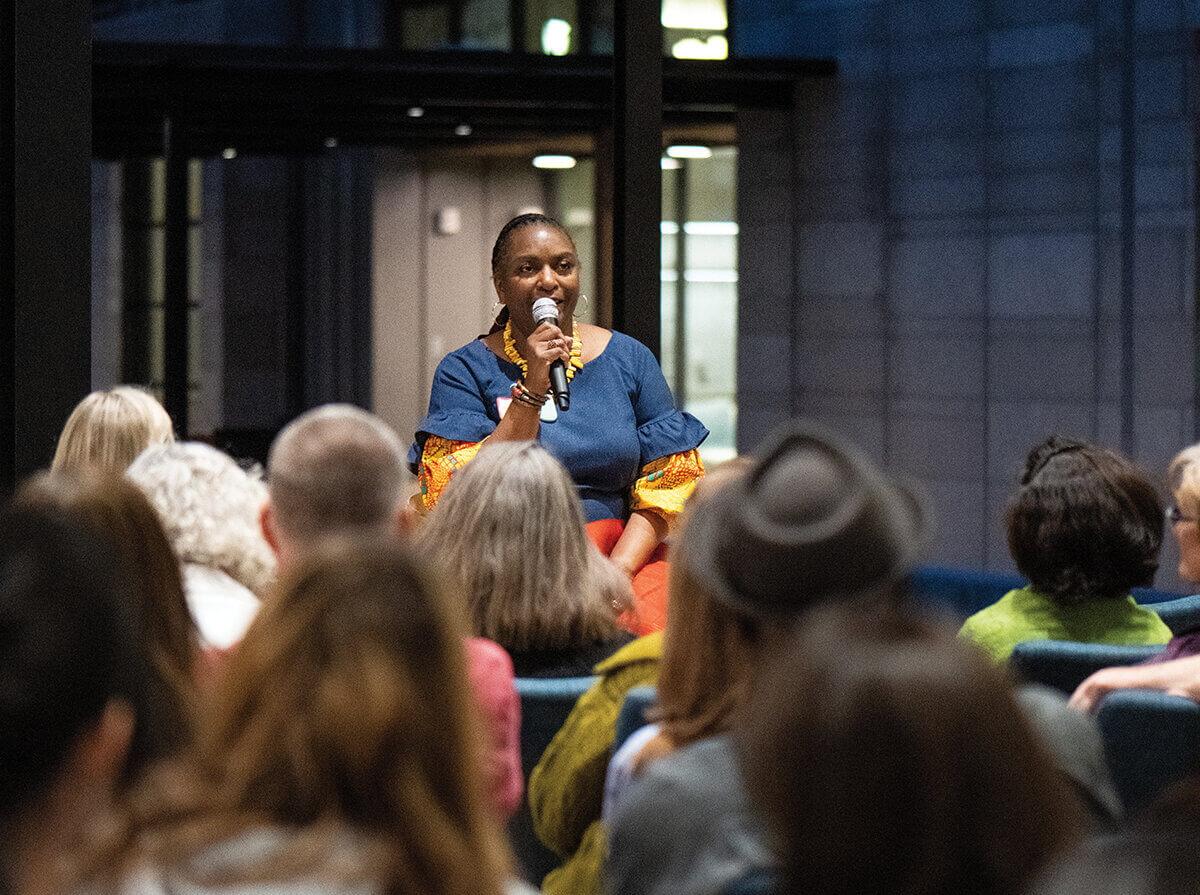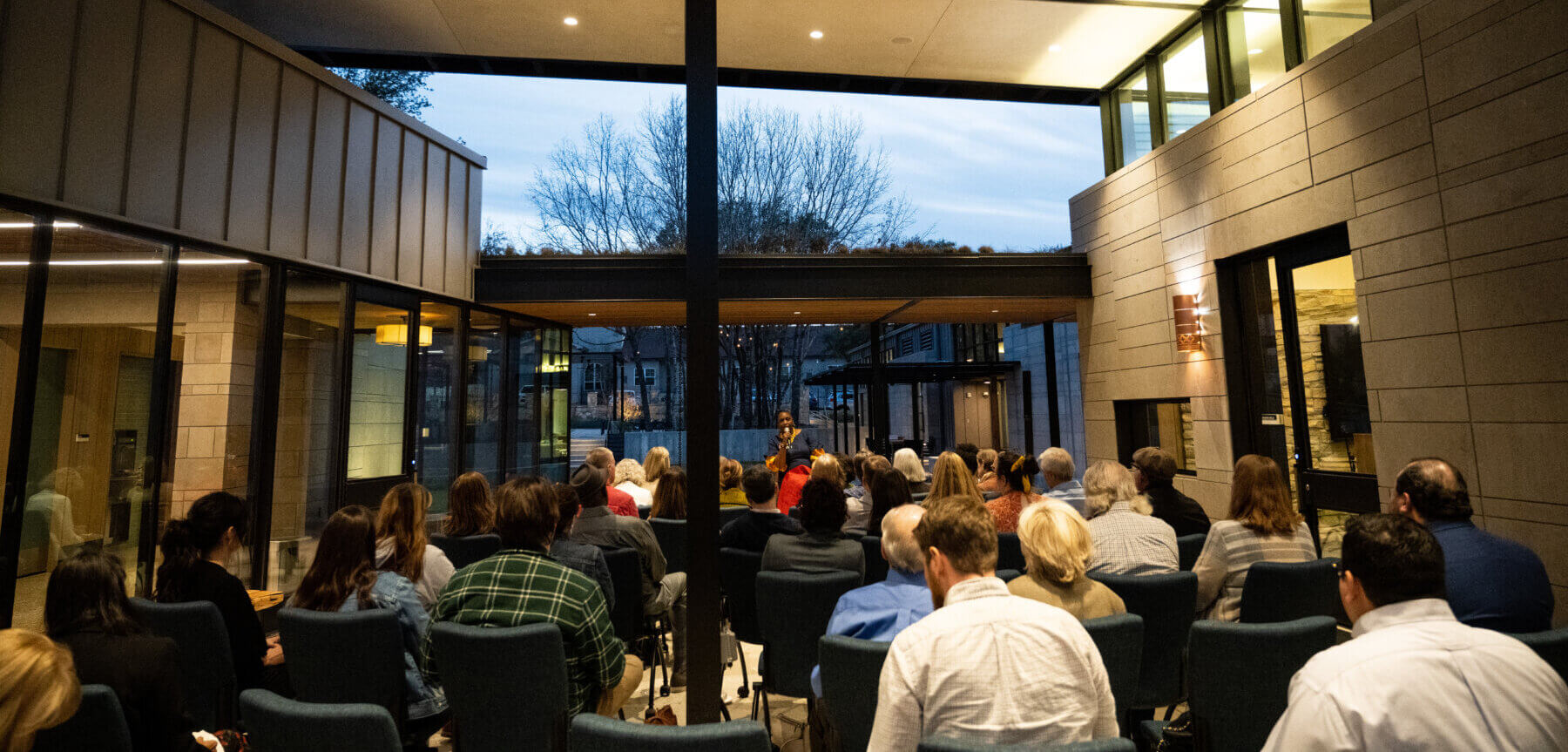

Every month, San Antonians gather to hear
firsthand stories from their neighbors.
Deborah Omowale Jarmon is the executive director for the San Antonio African American Community Archive & Museum (SAAACAM), with a mission to collect, archive, and tell the stories of the African American community in San Antonio. She spoke at Know Your Neighbor’s January Third Thursday even at the new H. E. Butt Foundation offices in San Antonio.
How Third Thursdays work: guests arrive, eat tasty food, listen to a speaker’s story, and discuss the story with others.
Deborah started by presenting the history of her family. Her mother grew up in Selma, Alabama, and was the granddaughter of an enslaved woman. Her father only had a fifth-grade education when he and her mother met in Columbus, Ohio.
Deborah does not go by “Debbie” or “Deb.” As her parents often told her, “Your name means ‘queen bee.’” She is named after the first and only female judge from the Bible (see Judges 4–5), and like her namesake, Deborah has often been the first and the only in her life. She was the first Black girl on her drill team in high school and at Ohio State University. In her 27-year career in air traffic control, she was part of a small minority. To this day, fewer than one percent of air traffic controllers are Black women.
“I come from a resilient group of people,” she said, and that motivates her to connect the African American community—both to one another and to their history.
“I know my history and the history of my people,” she said. “I owe it to my people to pay it—and play it—forward for what they’ve done for me.”
“I owe it to my people to pay it—and play it—forward for what they've done for me.”
Deborah Omowale Jarmon
The conversations after her talk at the Foundation’s San Antonio office were just as engaging and meaningful as her message. St. Mary’s public history professor Jerry Poyo and his wife, Miryam Burganda, marveled at Deborah’s ability to trace her family roots to slavery. Elizabeth Coffee, the director of storytelling at the Foundation and a descendent of Hawaiian natives, remembered her own mother and grandmother saying, “Never forget the islands.” One guest admitted that his community is homogeneous, and he expressed gratitude for Deborah’s story. Another guest confessed that he struggled to understand the African American experience, perhaps because of past actions that have silenced African American stories.
Deborah reminded everyone that night: if we all keep our stories alive, someone will hear them. If we all archive our histories, someone will learn them.
And learning those stories together is part of what it means to know our neighbor.